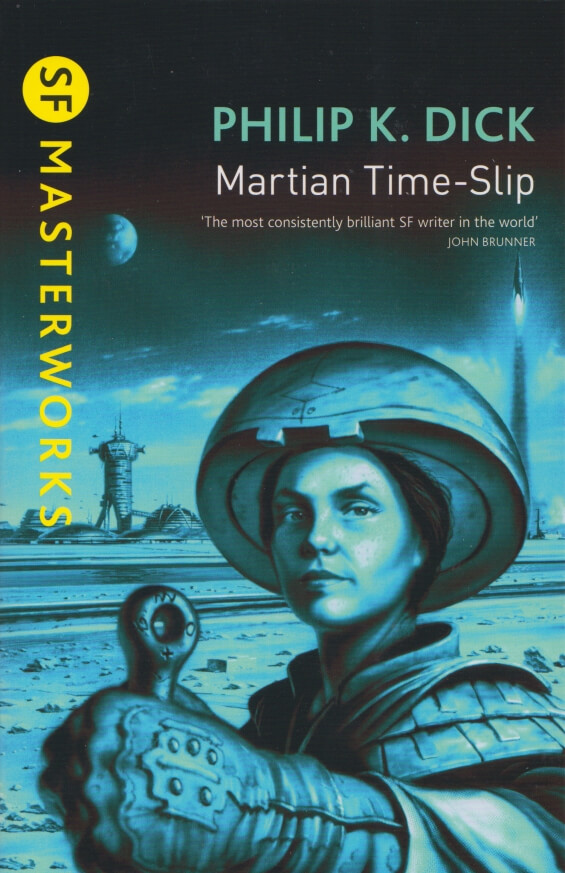
I think The Terminator may be the best Science Fiction film ever made. And I think that no one person, credited or uncredited, can take all the credit for it.
In the video below, edited from an episode of Prisoners Of Gravity, Harlan Ellison explains how he got his screen credit in The Terminator:
Soldier is the first episode of Season 2 of The Outer Limits (the original series). It’s plot features a futuristic time traveling soldier who, after a thunder crack, appears in a then modern urban alley. The soldier is nearly indestructible, and is incredibly strong. Later, he breaks into a gun shop. In the ultimate scene he confronts his (also) futuristic enemy and they are both destroyed. Those are the basic plot commonalities between Soldier and The Terminator. There are many, many differences. Visually though, there are some striking similarities. These are nicely documented here and here.
That all said, Soldier‘s story plays out very differently from The Terminator, you can see a lot more connections, if you squint really hard.
For example, the solider is scarred like Kyle Reese and is sometimes unintelligible like Schwarzenegger’s T-800 – but ultimately the two, the TV episode and the feature film, are radically different in both scale and scope.
Interestingly, Demon With A Glass Hand the fifth episode of the second season of the original The Outer Limits television series, also written by Ellison, has similarities to both The Terminator and another film.
Like Soldier and The Terminator, Demon With A Glass Hand features a protagonist sent from the future into the past. But in this case, unlike in the title character in Soldier, the time travel was done quite deliberately – and done by humans in order to save mankind – more like The Terminator right?
Also similar, our hero in Demon With A Glass Hand, is nearly indestructible, can survive being shot over and over, feels no need to sleep, is being hunted by enemies also sent from the future, and he is programmed! Those are the basic plot commonalities between Soldier and The Terminator. More on that other movie a little later.
In the Starlog article (December 1984) there is no mention of The Outer Limits or Ellison. But, in it James Cameron does say: “I read all the classics, all the old Ace paperback novels.”
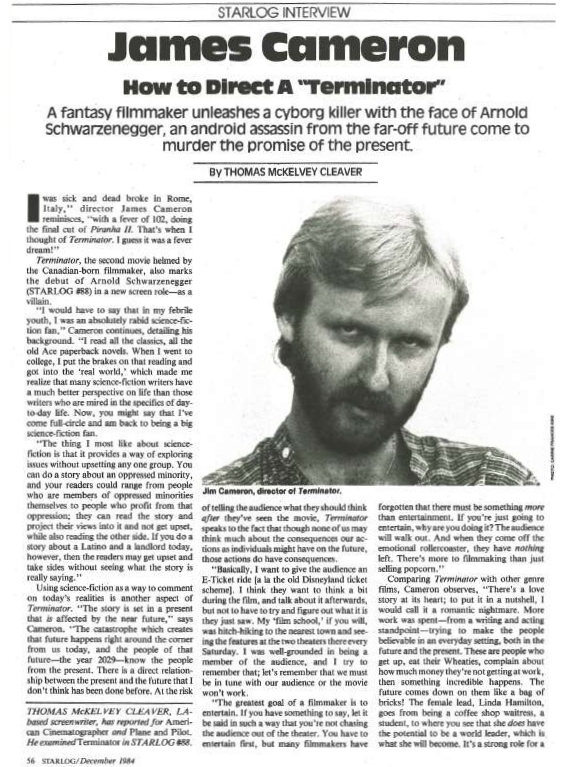
I do not expect that Cameron read all of the following stories. In fact I don’t think it is even necessary to know, and it isn’t crucial to my argument. Indeed, only one of the following stories was actually published in an “old Ace paperback”, (Second Variety was published in The Variable Man and Other Stories, Ace D-261).
My argument is that the story ideas and story points, even more than visuals, from the The Terminator, came very much out of 1950s science fiction.
Now before we get to the meat of my argument I’ll do a little sidestep towards another film, just to make it all the more confusing… its actually laying the groundwork for something, trust me.
Look at these images:
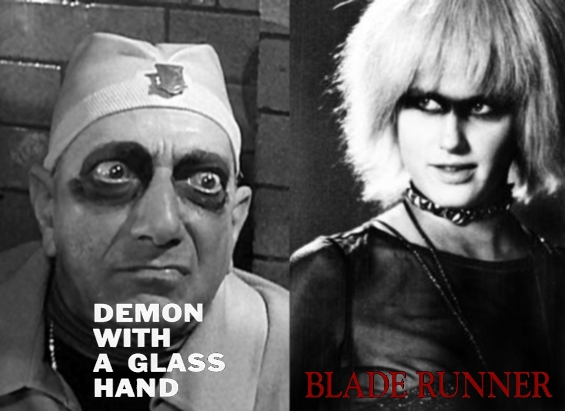
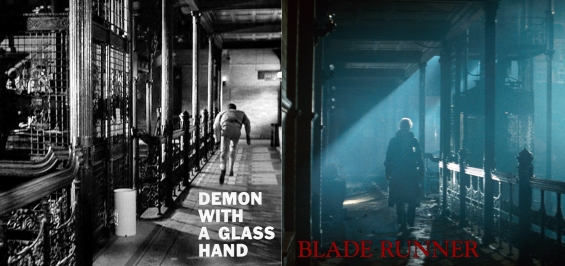
As you can see Demon With A Glass Hand shares something in common with Blade Runner, as much Id say as Soldier does with The Terminator.
The baddies in Demon With A Glass Hand, seen above, have racoon style eye makeup, like Blade Runner‘s Pris. Our hero in Demon With A Glass Hand, as it turns out, is an android that didn’t know he was one, just like in Blade Runner (and Do Androids Dream Of Electric Sheep?). Blade Runner was also shot in the same stylish office building in Los Angeles (the Bradbury Building*). And, the final fight of both stories ends in the same way, out the window and onto the roof of the Bradbury!
The “cybernetic organism” of The Terminator is in essence an android, a robot that looks like a human being, specifically a male human being if you want to get all technical.
Now even more than Ellison, who does have an android in Trent, the hero of Demon In A Glass Hand it is Philip K. Dick who is best known for his androids. Though robots that look like, think they are, or can pass for human aren’t unique or original to Dick, they are something he kind of specialized in. Stories like Imposter and The Electric Ant have androids and of course there is Do Androids Dream Of Electric Sheep?.
Now practically everyone knows that Do Androids Dream Of Electric Sheep? was adapted into a 1982 film called Blade Runner.
But do these folks know that the title of the Blade Runner was licensed from a book by a different author and entirely unrelated to Dick’s?
It was!
Ridley Scott acquired the rights to the title of a script based on an unrelated 1974 Science Fiction novel entitled The Bladerunner.
Why did he do this?
He didn’t have to, nobody has the legal right to claim exclusivity on book and movie titles – but as a matter of smart practice, when millions and millions of dollars are at stake, they often do such crazy things.
Now back to Philip K. Dick. He could, had he been alive in 1984, argued that his stories could have inspired The Terminator or even Demon With A Glass Hand!
Ellisons 1958 script for Demon With A Glass Hand has a “time mirror” – a device related to time travel – and so does a Philip K. Dick story.
For example, Dick uses what he calls a “time scoop” and a “time mirror” in a story called Paycheck (Imagination, June 1953). A time “Dip” turns up in a story named Meddler and in his novel Dr. Futurity (itself an expansion of a novella, Time Pawn) has a time “dredge.”
Here’s a snippet from Paycheck:
“It’s developed a time scoop.”
“What?”
“A time scoop. It’s been theoretically possible for several years. But it’s illegal to experiment with time scoops and mirrors. It’s a felony, and if you’re caught, all your equipment and data becomes the property of the Government.” Jennings smiled crookedly. “No wonder the Government’s interested. If they can catch Rethrick with the goods –”
“A time scoop. It’s hard to believe.”
But Dick didn’t invent the idea either, a story from Amazing Stories, December 1942, has the same tech, its actually in the title!
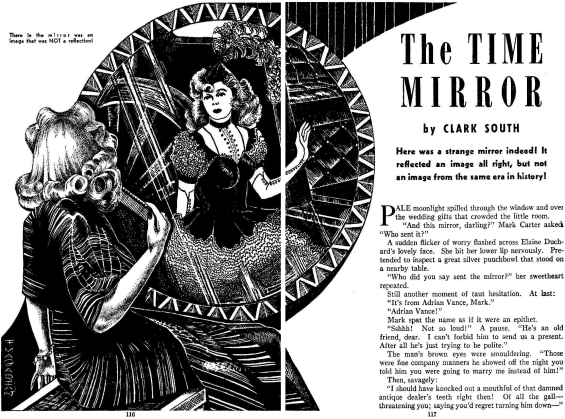
Another story that could have inspired The Terminator is The Skull. This 1952 story was published in If: Worlds Of Science Fiction. In it the protagonist is sent back in time in order to kill a man who can’t be allowed to live. He doesn’t know the man’s identity, but the clue lies within his own head, kind of like The Terminator.
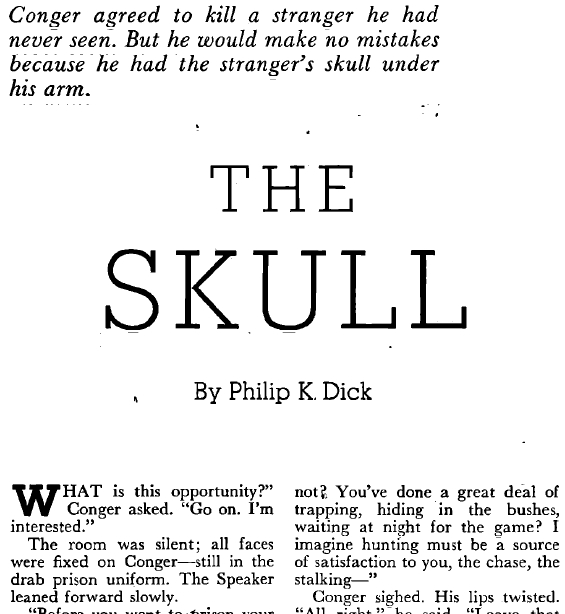
Now to get out of time travel, let me ask you, where is Skynet, the evil A.I. in either of those Ellison stories? They are absent. But, he has evil computers, ones that want to destroy humanity even, for example there’s AM, the evil A.I. from I Have No Mouth, and I Must Scream. But that story is from 1967, and is not Skynet, exactly…
Well, let me tell you about The Great C, first published in Cosmos Science Fiction and Fantasy Magazine, September 1953. This story is set in a Fallout-style post apocalyptic wasteland. Straight away we learn that a band of humans have survived underground after a global nuclear war. The plot consists of following:
One of their number as he sets off with three questions to visit what the reader infers to be a great oracle. The oracle is the titular “Great C” with “C” being short for “Computer”. But unlike the Colossus supercomputer (from Colossus: The Forbin Project) that merely threatens nuclear war, this supercomputer pulled a full-Skynet and actually used the offensive nuclear capability on it’s creators, man.
See?
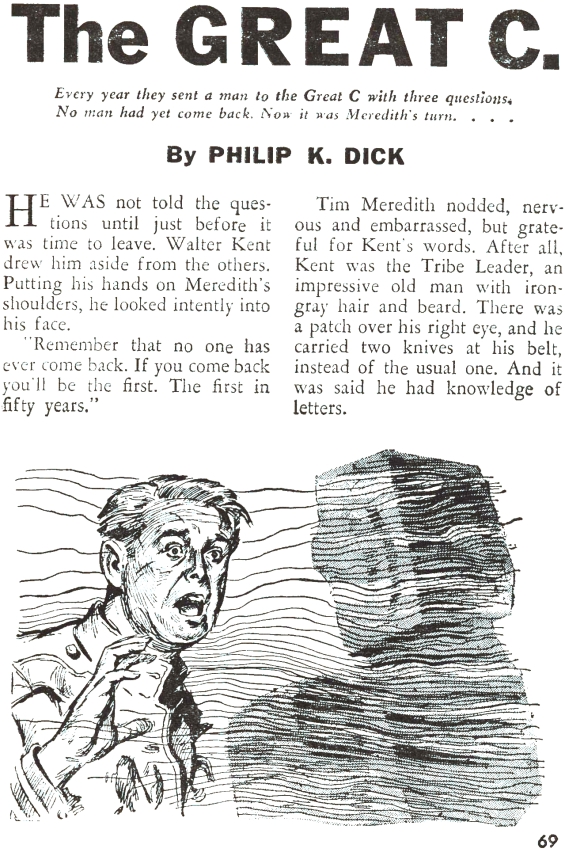
Now Second Variety, first appeared in Space Science Fiction, May 1953. And it was later adapted to film as Screamers. It is set in a post-WWIII world where killer robots, known as “Claws”, are developing newer and newer models of killer robot for human infiltration.
Check out these two illustrations from the story:
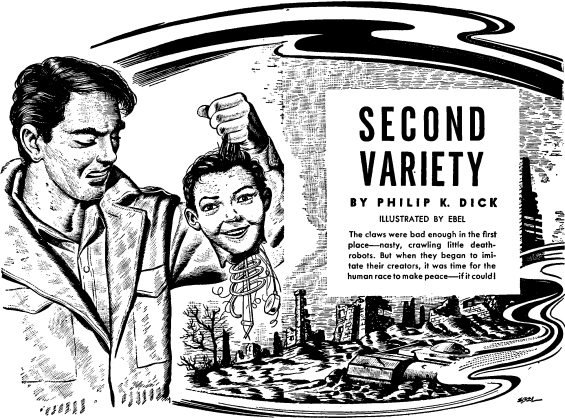
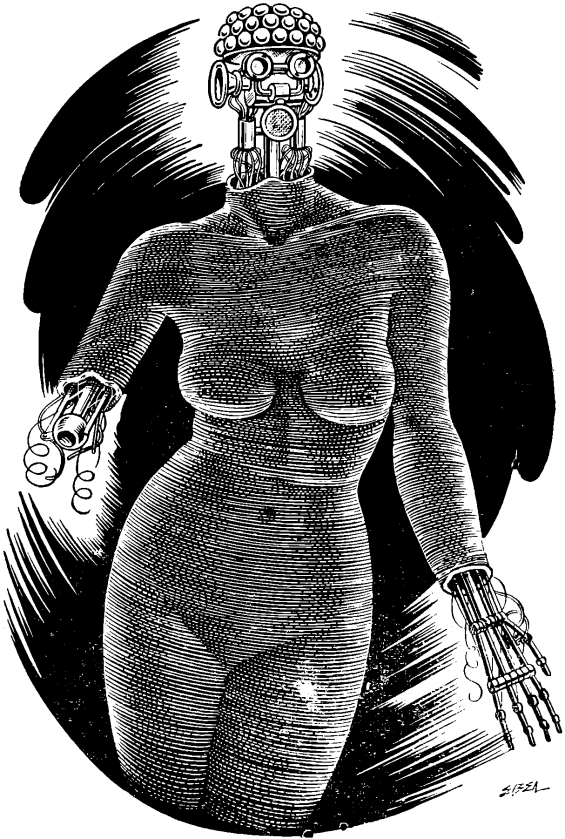
So, why did Cameron’s The Terminator have to give credit to Harlan Ellison if Scott didn’t have to give it to Blade Runner?
I suspect it all happened pretty much as Ellison said it did. That in the unpublished interview notes for that Starlog interview Cameron actually said that he “ripped-off a couple of Outer Limits segments” and perhaps even “a couple of Harlan Ellison stories.”
But it doesn’t matter to me. Credits or dollars, the only thing I really care at all about the story, and I think that The Terminator builds on great SF stories by the likes of Philip K. Dick and Harlan Ellison and Isaac Asimov and H.G. Wells, and some Outer Limits TV episodes, and maybe some other movies too.
Humans do this and it is a good thing. I’m glad so many humans had a hand in making it.
By listening to stories, and by retelling them we continue the process of story refinement. The Terminator wasn’t a “rip-off” it was a tribute, it stands alone, and it stands tall and proud next to the great SF stories that came before it, in 1950s TV, 1950s books and 1950s magazines and probably to the decades before it too.
As for the James Cameron Harlan Ellison dispute, well, Cameron may have had a “huge ego”, as Harlan Ellison put it, or maybe he didn’t – who knows – Ellison had “never met the man” – it may just have been a self-deprecating statement. We can all use a little of that, and a lot more Philip K. Dick.
Posted by Jesse Willis
*The “Bradbury” in the Bradbury Building is no relation to Ray Bradbury … or is it?


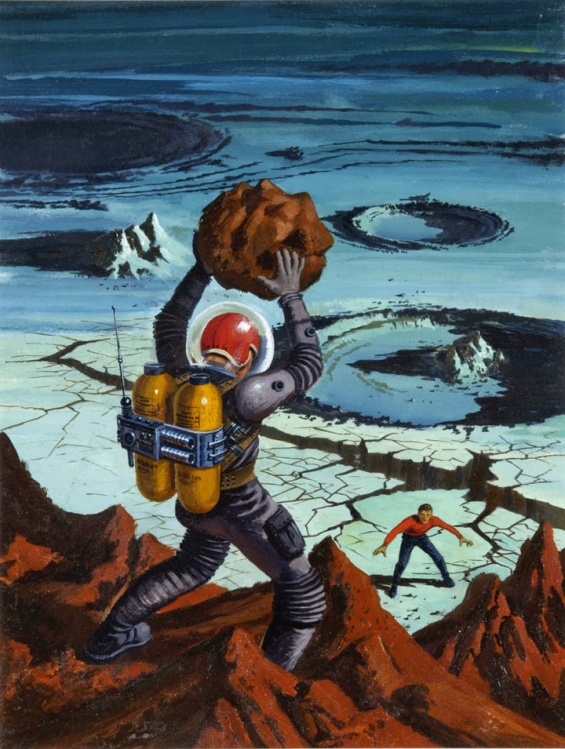
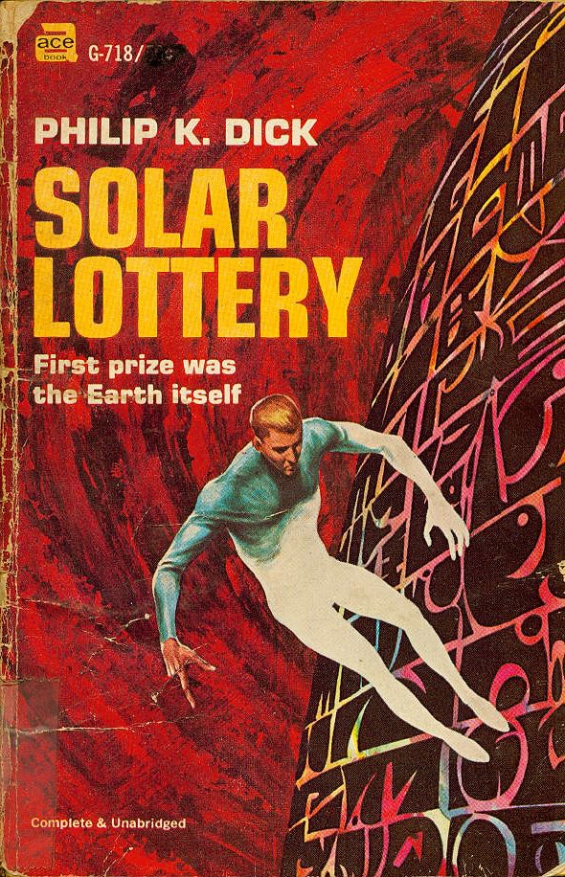
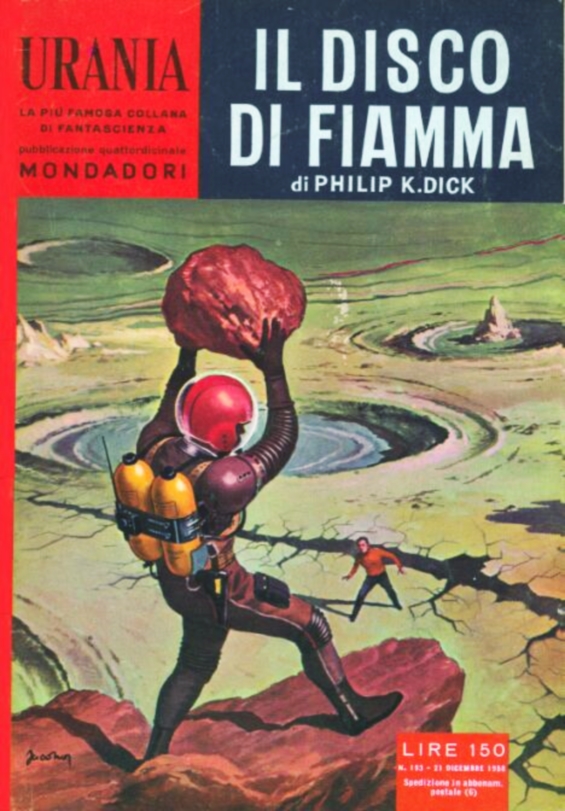
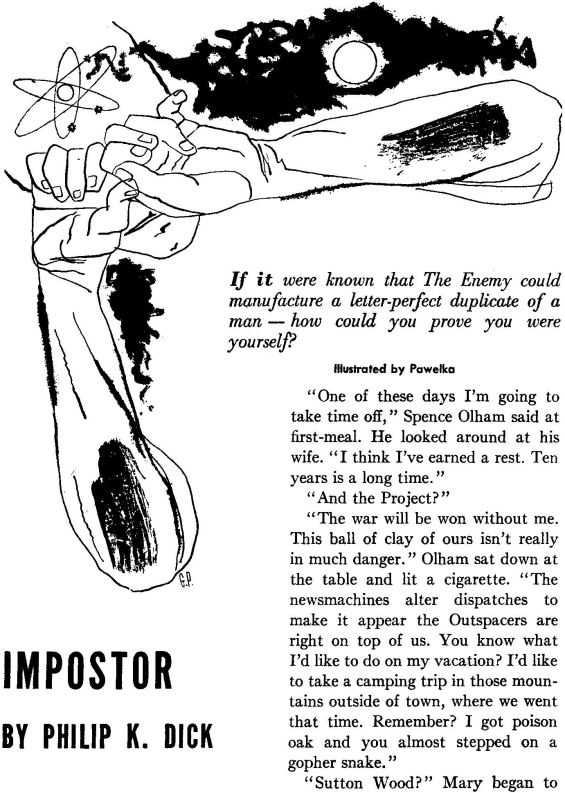

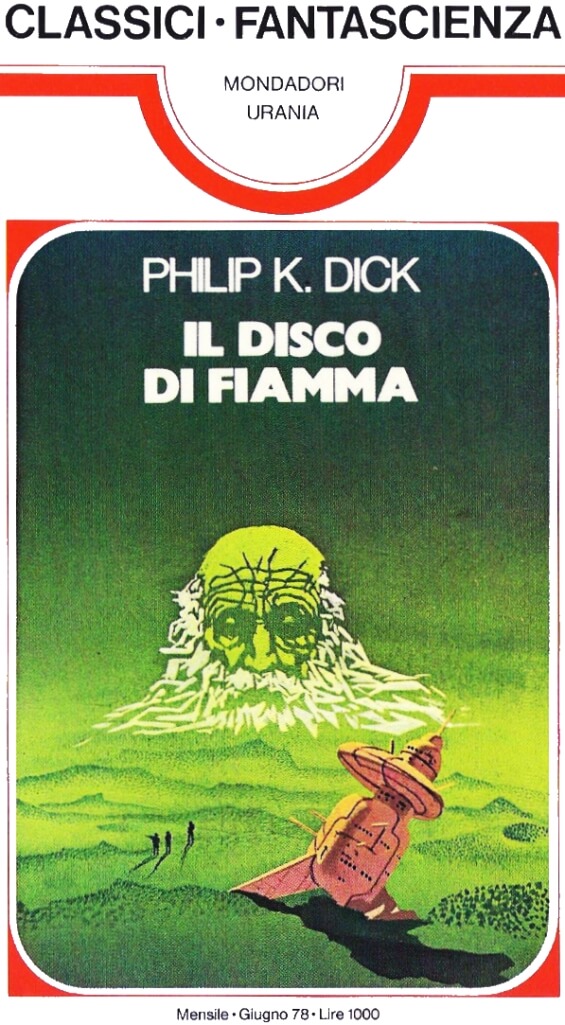
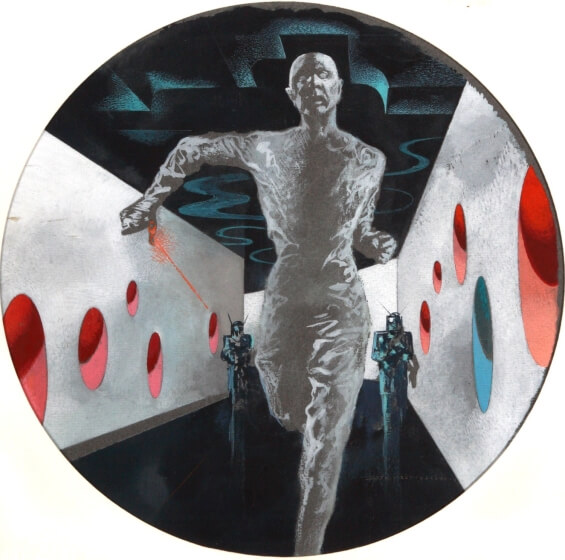
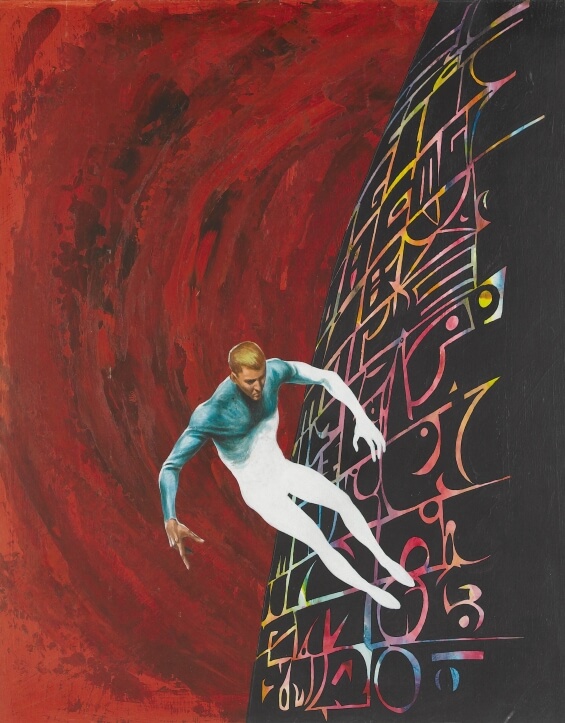

 An Unwelcome Quest (Magic 2.0, Book 3)
An Unwelcome Quest (Magic 2.0, Book 3) The Peripheral
The Peripheral Martian Time-Slip
Martian Time-Slip












